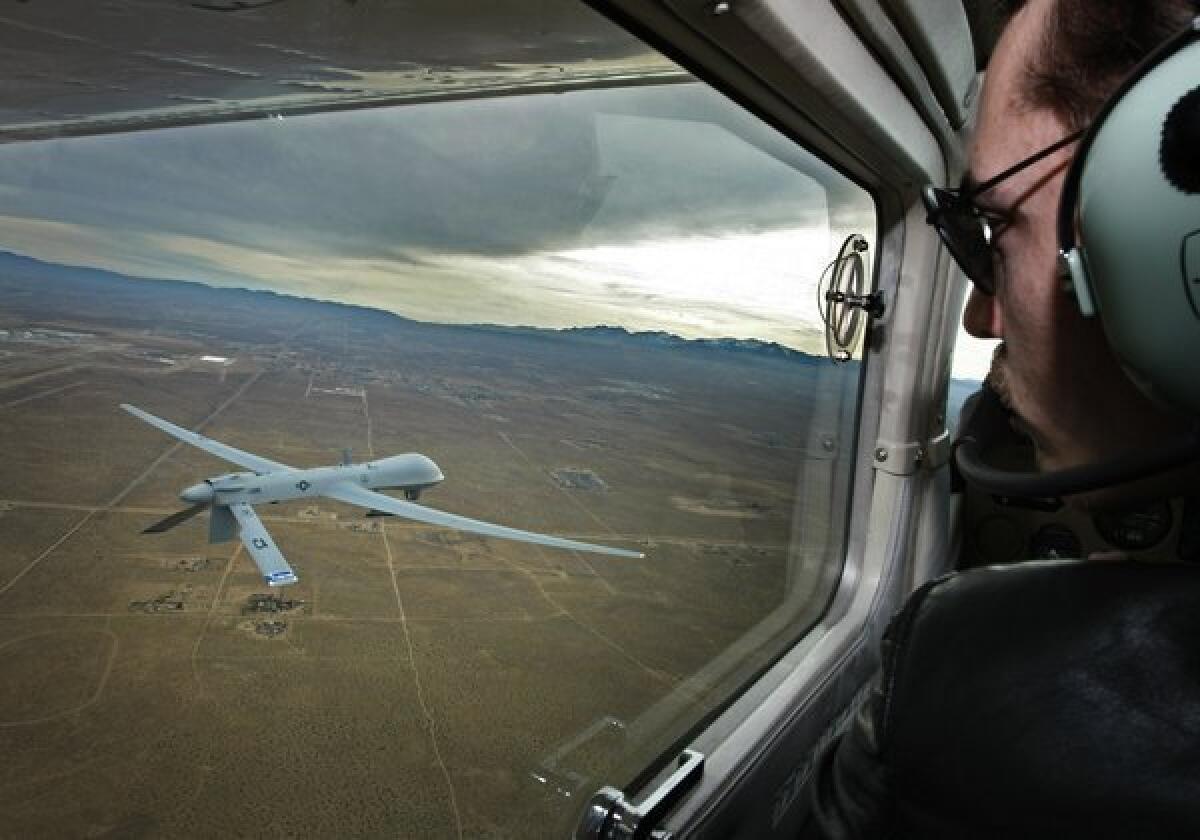United Arab Emirates reaches deal to buy unarmed Predator drones

California-based General Atomics Aeronautical System Inc. said Friday it has struck a deal to sell unarmed Predator drones to the United Arab Emirates military.
The agreement would mark the first time a non-NATO country has obtained the American-made technology that’s reshaped modern warfare.
The deal has drawn scrutiny from critics who worry about the technology falling into terrorists’ hands or being used by governments against their own citizens.
Under the proposed sale, revealed this week at a defense conference in Abu Dhabi and confirmed Friday, General Atomics, of Poway, Calif., will sell an undisclosed number of the robotic aircraft to the UAE armed forces for $197 million.
The UAE, notably the sheikdom of Dubai, has been a crossroads for banking, finance and technology as the nation emerged as an economic hub for the Arab world. It has only recently begun to tighten regulations to limit money laundering and other shady financial endeavors that attracted Islamic militants, drug smugglers and other traffickers.
Over the last year, UAE security officials -- often criticized for surveillance tactics -- have also cracked down on internal dissent following the political upheavals of the Arab Spring.
The sale still would need to win approval from Congress. Currently, there are federal restrictions on selling large drones. But General Atomics, which builds the MQ-1 Predator and MQ-9 Reaper hunter-killer drones used by the Air Force and CIA, has designed a new unarmed version of the Predator that would qualify for export.
The remotely piloted aircraft, called the Predator XP, could be used for intelligence, surveillance, and reconnaissance missions, but will not be outfitted for weapons capabilities. The company did not say what – if any -- cameras and sensor packages would be included.
But the drone has the same physical dimensions, altitude, speed, and long endurance -- up to 35 hours -- as the original unarmed version of the Predator drone first flown by the U.S. Air Force in 1995.
General Atomics redesigned the Predator -- XP stands for “export” -- with the sole purpose of selling it to a broader customer base, including countries in the Middle East and North Africa.
The company said it received an export license from the State Department to share technical information about the drone, but finalizing a deal is subject to other regulatory approval. Neither the State Department nor Sen. Robert Menendez (D-N.J.), the chairman of the Senate Foreign Relations Committee, would comment on the proposed sale.
General Atomics says a number of other regional governments have also expressed interest in the Predator XP. The company said the Predator XP cannot be weaponized, but some observers have concerns about turning over drone technology that could be replicated to a missile-carrying system.
Times staff writer Jeffrey Fleishman contributed to this report.
More to Read
Sign up for Essential California
The most important California stories and recommendations in your inbox every morning.
You may occasionally receive promotional content from the Los Angeles Times.










